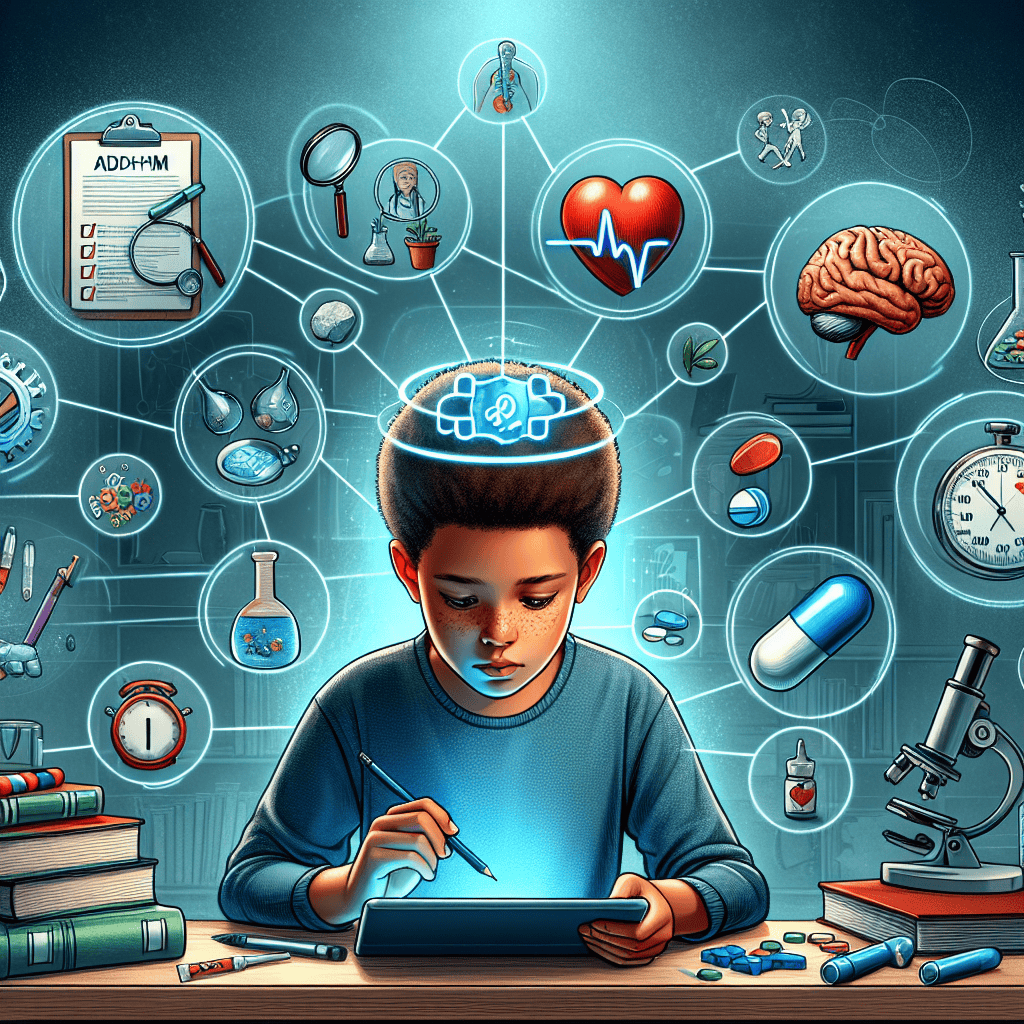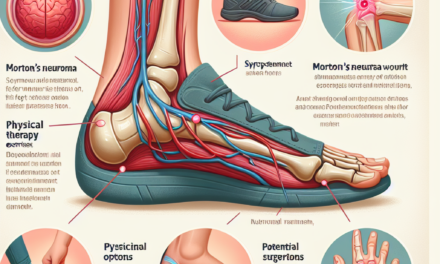Boosting Your Child’s Education with ADHD Testing and Digital Health Solutions

In today’s fast-paced world, ensuring that children receive the best possible education is a priority for many parents. However, for children with Attention Deficit Hyperactivity Disorder (ADHD), traditional educational methods may not always be effective. This article explores how ADHD testing and digital health solutions can significantly enhance a child’s educational experience. By understanding ADHD and leveraging modern technology, parents and educators can create a supportive learning environment that caters to the unique needs of each child.
Understanding ADHD: A Comprehensive Overview
ADHD is a neurodevelopmental disorder that affects millions of children worldwide. It is characterized by symptoms such as inattention, hyperactivity, and impulsivity, which can significantly impact a child’s ability to learn and succeed in a traditional classroom setting. Understanding the nuances of ADHD is the first step in providing effective support for affected children.
What is ADHD?
ADHD is a complex condition that manifests in various ways. It is typically diagnosed in childhood, with symptoms often continuing into adulthood. The disorder is divided into three main types: predominantly inattentive presentation, predominantly hyperactive-impulsive presentation, and combined presentation. Each type presents unique challenges that require tailored approaches to management and education.
Research indicates that ADHD is caused by a combination of genetic, environmental, and neurological factors. Studies have shown that children with ADHD often have differences in brain structure and function, particularly in areas related to attention and impulse control. Understanding these underlying causes can help in developing effective strategies for managing the disorder.
Prevalence and Impact
According to the Centers for Disease Control and Prevention (CDC), approximately 6.1 million children in the United States have been diagnosed with ADHD. This prevalence highlights the importance of addressing the educational needs of these children. ADHD can lead to academic challenges, social difficulties, and emotional issues if not properly managed.
Children with ADHD often struggle with tasks that require sustained attention, organization, and time management. These challenges can result in lower academic performance, increased risk of school dropout, and difficulties in social interactions. By understanding the impact of ADHD, parents and educators can implement strategies to mitigate these effects and support the child’s educational journey.
Diagnosis and Testing
Accurate diagnosis of ADHD is crucial for effective intervention. The process typically involves a comprehensive evaluation by a healthcare professional, which may include interviews, questionnaires, and behavioral assessments. Early diagnosis can lead to timely interventions that improve educational outcomes.
ADHD testing often includes a combination of psychological assessments and medical evaluations. Tools such as the Conners’ Rating Scales and the ADHD Rating Scale-IV are commonly used to assess symptoms and their impact on daily functioning. These assessments provide valuable insights into the child’s strengths and weaknesses, allowing for personalized educational strategies.
Challenges in Traditional Education
Traditional educational settings may not always accommodate the needs of children with ADHD. The structured environment, long periods of sitting, and emphasis on rote learning can be particularly challenging for these children. As a result, they may experience frustration, decreased motivation, and behavioral issues.
Teachers may also face challenges in managing a classroom with students who have ADHD. Without proper training and resources, it can be difficult to provide the necessary support and accommodations. This highlights the need for innovative solutions that address the unique needs of children with ADHD in educational settings.
The Role of Parents and Educators
Parents and educators play a crucial role in supporting children with ADHD. By working together, they can create a collaborative approach that enhances the child’s educational experience. This involves open communication, setting realistic expectations, and implementing strategies that cater to the child’s individual needs.
Parents can advocate for their child’s needs by working with teachers to develop individualized education plans (IEPs) or 504 plans. These plans outline specific accommodations and modifications that support the child’s learning. Educators can also benefit from professional development opportunities that provide insights into effective teaching strategies for students with ADHD.
Digital Health Solutions: Revolutionizing ADHD Management
In recent years, digital health solutions have emerged as powerful tools for managing ADHD. These technologies offer innovative ways to support children with ADHD, providing personalized interventions that enhance their educational experience. From mobile apps to wearable devices, digital health solutions are transforming the way ADHD is managed in educational settings.
Mobile Apps for ADHD Management
Mobile apps have become increasingly popular for managing ADHD symptoms. These apps offer a range of features, including task management, reminders, and behavior tracking. By providing real-time feedback and support, mobile apps can help children with ADHD stay organized and focused on their educational goals.
For example, apps like “Focus@Will” use music to enhance concentration and productivity, while “Habitica” gamifies task management to motivate children to complete their assignments. These apps leverage technology to create engaging and interactive experiences that support learning and development.
Wearable Devices and Biofeedback
Wearable devices are another innovative solution for managing ADHD. These devices can monitor physiological responses, such as heart rate and skin conductance, providing insights into the child’s emotional and cognitive state. By using biofeedback, children can learn to regulate their emotions and improve their focus.
Devices like the “Muse Headband” offer guided meditation sessions that help children develop mindfulness skills. These skills can enhance attention and reduce impulsivity, leading to improved academic performance. Wearable devices provide a hands-on approach to ADHD management, empowering children to take control of their learning experience.
Online Therapy and Support
Online therapy platforms have made mental health support more accessible for children with ADHD. These platforms offer virtual counseling sessions, allowing children to receive professional support from the comfort of their homes. Online therapy can address emotional and behavioral challenges, providing strategies for managing ADHD symptoms.
Platforms like “BetterHelp” and “Talkspace” connect children with licensed therapists who specialize in ADHD. These therapists can work with children to develop coping strategies, improve social skills, and enhance self-esteem. Online therapy offers a flexible and convenient option for families seeking support for their child’s ADHD.
Educational Software and Tools
Educational software and tools are designed to support children with ADHD in their learning journey. These tools offer interactive and engaging content that caters to different learning styles. By incorporating multimedia elements, educational software can capture the attention of children with ADHD and enhance their understanding of complex concepts.
Programs like “Khan Academy” and “BrainPOP” provide a wealth of resources that cover a wide range of subjects. These platforms offer video lessons, quizzes, and interactive activities that make learning fun and accessible. Educational software can supplement traditional teaching methods, providing additional support for children with ADHD.
Case Studies and Success Stories
Numerous case studies highlight the effectiveness of digital health solutions in managing ADHD. For example, a study published in the Journal of Attention Disorders found that children who used a digital intervention program showed significant improvements in attention and behavior compared to those who did not use the program.
Success stories from parents and educators also demonstrate the positive impact of digital health solutions. Many families have reported improved academic performance, increased motivation, and enhanced social skills in children who use these technologies. These success stories underscore the potential of digital health solutions to transform the educational experience for children with ADHD.
Integrating ADHD Testing and Digital Solutions in Education
Integrating ADHD testing and digital health solutions into educational settings requires a collaborative approach. By working together, parents, educators, and healthcare professionals can create a supportive environment that meets the unique needs of children with ADHD. This section explores strategies for successful integration and highlights the benefits of a holistic approach to ADHD management.
Developing Individualized Education Plans (IEPs)
Individualized Education Plans (IEPs) are essential for supporting children with ADHD in educational settings. These plans outline specific accommodations and modifications that address the child’s unique needs. By incorporating digital health solutions into IEPs, educators can provide personalized support that enhances the child’s learning experience.
IEPs may include accommodations such as extended time for assignments, preferential seating, and the use of technology for note-taking. By leveraging digital health solutions, educators can offer additional support, such as task management apps and online resources, to help children stay organized and focused.
Training and Professional Development for Educators
Educators play a crucial role in supporting children with ADHD. Providing training and professional development opportunities can equip teachers with the knowledge and skills needed to effectively manage ADHD in the classroom. This includes understanding the symptoms of ADHD, implementing effective teaching strategies, and utilizing digital health solutions.
Workshops and seminars can provide educators with insights into the latest research and best practices for ADHD management. By staying informed about new technologies and interventions, teachers can create a supportive learning environment that caters to the needs of children with ADHD.
Collaboration Between Parents, Educators, and Healthcare Professionals
Collaboration between parents, educators, and healthcare professionals is essential for successful integration of ADHD testing and digital health solutions. By working together, these stakeholders can develop a comprehensive approach to ADHD management that addresses the child’s academic, social, and emotional needs.
Regular communication and collaboration can ensure that all parties are aligned in their efforts to support the child. This may involve sharing information about the child’s progress, discussing strategies for managing symptoms, and coordinating interventions. A collaborative approach can lead to more effective and consistent support for children with ADHD.
Monitoring and Evaluating Progress
Monitoring and evaluating progress is crucial for assessing the effectiveness of ADHD interventions. By tracking the child’s academic performance, behavior, and emotional well-being, parents and educators can identify areas of improvement and adjust strategies as needed.
Digital health solutions offer tools for tracking progress, such as behavior tracking apps and online assessment platforms. These tools provide valuable data that can inform decision-making and guide interventions. Regular evaluation ensures that the child receives the support they need to succeed in their educational journey.
Overcoming Challenges and Barriers
Integrating ADHD testing and digital health solutions into educational settings may present challenges and barriers. These may include limited access to technology, resistance to change, and lack of awareness about available resources. Addressing these challenges requires a proactive approach and a commitment to creating an inclusive learning environment.
Strategies for overcoming these challenges include advocating for increased funding for technology in schools, providing training for educators, and raising awareness about the benefits of digital health solutions. By addressing these barriers, stakeholders can create a supportive environment that enhances the educational experience for children with ADHD.
The Future of ADHD Management in Education
The future of ADHD management in education is promising, with advancements in technology and research paving the way for innovative solutions. As digital health solutions continue to evolve, they offer new opportunities for supporting children with ADHD in their educational journey. This section explores emerging trends and technologies that are shaping the future of ADHD management in education.
Advancements in Artificial Intelligence (AI)
Artificial Intelligence (AI) is revolutionizing the field of ADHD management. AI-powered tools can analyze data from various sources, such as behavior tracking apps and wearable devices, to provide personalized insights and recommendations. These tools can help educators and parents identify patterns and trends in the child’s behavior, allowing for more targeted interventions.
AI can also enhance educational software by providing adaptive learning experiences that cater to the child’s individual needs. By analyzing the child’s performance and learning style, AI-powered platforms can offer personalized content and feedback that supports their educational development.
Virtual Reality (VR) and Augmented Reality (AR)
Virtual Reality (VR) and Augmented Reality (AR) are emerging technologies that offer immersive learning experiences for children with ADHD. These technologies can create engaging and interactive environments that capture the child’s attention and enhance their understanding of complex concepts.
For example, VR simulations can provide hands-on experiences in subjects such as science and history, allowing children to explore and interact with virtual environments. AR can overlay digital information onto the real world, providing visual aids and interactive elements that support learning. These technologies offer new possibilities for creating inclusive and engaging educational experiences for children with ADHD.
Telehealth and Remote Support
Telehealth and remote support are becoming increasingly important in the field of ADHD management. These services offer convenient and accessible options for families seeking support for their child’s ADHD. Telehealth platforms provide virtual consultations with healthcare professionals, allowing for timely interventions and ongoing support.
Remote support services, such as online tutoring and virtual coaching, offer additional resources for children with ADHD. These services provide personalized support that addresses the child’s academic and behavioral needs. As telehealth and remote support continue to expand, they offer new opportunities for enhancing the educational experience for children with ADHD.
Data-Driven Decision Making
Data-driven decision making is becoming a key component of ADHD management in education. By leveraging data from digital health solutions, educators and parents can make informed decisions about interventions and strategies. This data provides valuable insights into the child’s progress, allowing for more effective and targeted support.
Data-driven decision making also enables continuous improvement in educational practices. By analyzing data from various sources, stakeholders can identify areas for improvement and implement changes that enhance the learning experience for children with ADHD. This approach ensures that interventions are evidence-based and tailored to the child’s unique needs.
Personalized Learning Experiences
Personalized learning experiences are at the forefront of ADHD management in education. By leveraging technology, educators can create customized learning experiences that cater to the child’s individual needs and preferences. This approach enhances engagement and motivation, leading to improved academic outcomes.
Personalized learning experiences may include adaptive learning platforms, individualized lesson plans, and interactive activities that align with the child’s interests. By providing a tailored approach to education, personalized learning experiences empower children with ADHD to reach their full potential.
Conclusion: Empowering Children with ADHD Through Innovation
In conclusion, ADHD testing and digital health solutions offer powerful tools for enhancing the educational experience of children with ADHD. By understanding the nuances of ADHD and leveraging modern technology, parents and educators can create a supportive learning environment that caters to the unique needs of each child.
From mobile apps and wearable devices to online therapy and educational software, digital health solutions provide innovative ways to manage ADHD symptoms and support learning. By integrating these solutions into educational settings, stakeholders can create a collaborative approach that empowers children with ADHD to succeed academically, socially, and emotionally.
As technology continues to evolve, the future of ADHD management in education is bright. Emerging trends and technologies offer new opportunities for creating inclusive and engaging learning experiences for children with ADHD. By embracing innovation and collaboration, we can ensure that every child receives the support they need to thrive in their educational journey.





